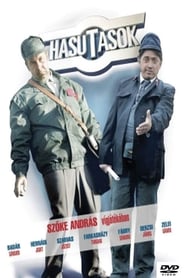detail profile s c3 a1ndor f c3 a1bry
Peran Yang Di Mainkan Sándor Fábry
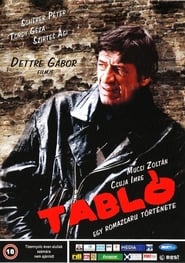 Karcsi a Roma policeman lives with...
Karcsi a Roma policeman lives with...Tabló 2008
Karcsi, a Roma policeman, lives with Eva, a Swede. One day he is called to the scene of the murder of a wealthy trafficker named Schulter. He begins to investigate the crime, interrogate neighbours and suspects, and untangle a complex situation - one that he, himself, complicates even further. For he is a gypsy, who despite being adopted and raised by "regular" Hungarians, has his nose rubbed in his minority status every day. The film, which is based on the novel by Ákos Kertész, is a shrewd genre work full of dusky humour and surreal situations. Tabló follows a vivid succession of strange images that eventually lead to the emergence of the central story about a charismatic police officer on a tireless quest for the truth, though he must fight against virtually everyone and is just as fallible as the next person. Tabló makes a statement on the issue of race and racism - or, indeed, relations between any minority and majority.
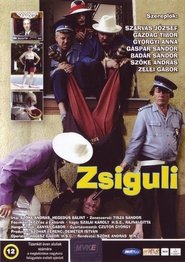 The investigation of the melon affair...
The investigation of the melon affair...Zhiguli 2004
The investigation of the melon affair, to remain undisclosed for thirty years, is led by Major Piroska Szabó, the secret girlfriend of Mr. Kálmán, the boss, with a charge against the policemen Lajos Endúros and Richard Wagner. Sitting on the terrace of their favourite snack bar, the two policemen, along with Sergeant-Major Badár, take an oath not to testify against each other, and to mislead the authorities by giving false evidence.
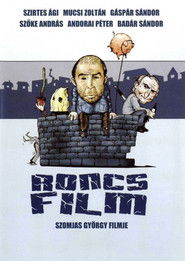 It is 1989 the year of the...
It is 1989 the year of the...Junk Movie 1992
It is 1989, the year of the demise of socialism in eastern Europe. Nevertheless, the one theme of Junk Movie does not refer to this historical moment of high ideals, quite the contrary, the wild, burlesque of a motif-mozaic seems merely to stick it’s tongue out at the arrogant players of politics who have their heads stuck in the clouds. The film rudely points out the mystery and unapproachability surrounding the every-day existence of politics. The scene is a greasy, falling-down block of a pub called the Gólya and its immediate surroundings.
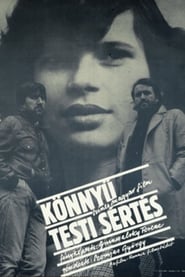 In this mix of black comedy...
In this mix of black comedy...Tight Quarters 1983
In this mix of black comedy and harsh drama, a man and wife are divorced yet still have to share their living quarters even though the wife has remarried -- housing is seriously hard to find in Budapest. Csaba (Karoly Eperjes) has just come out of doing a stint in prison because he stabbed a man while drunk, and when he goes home he discovers that his wife (Mariann Erdos) is now living with someone else in their apartment. Csaba quickly divorces his wife but he still has to move in and share a kitchen and bathroom with her and her new mate, suffering because he still loves her. This untenable situation is complicated by visits from Csaba's mother, and by various women he starts seeing, as well as by a busy-body neighbor. The three main roles of Csaba, his wife, and her lover (Peter Andorai) are excellently interpreted in this satire on social morés and economic realities.


